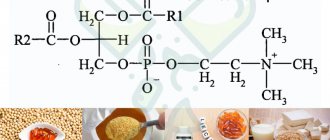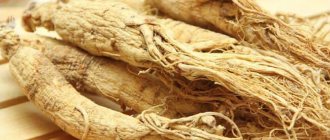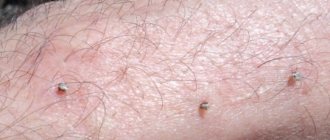Rhodiola is a genus of perennial plants from the Crassulaceae family. The genus branches into an average of 90 species, but Rhodiola rosea has become the most popular. The composition of the plant has attracted the attention of pharmacology, cosmetology, perfumery and even the sports industry. Rhodiola was nicknamed the “golden root”, included in the Red Book, and control over the cultivation and use of the component was strengthened.
What is hidden behind the unsightly Rhodiola flowers and how can the plant be of interest to the consumer?
What is golden root
The medicinal plant called Golden Root or Rhodiola rosea is a well-known remedy that has been used in alternative medicine for many centuries.
It is famous for its adaptogenic and general tonic effect, and is used for the prevention and treatment of various diseases. In addition to pharmacology, Rhodiola is used in the perfume and cosmetology industries. Now the plant is included in the Red Book and control over its cultivation has been strengthened. Goldenseal loves fairly cold or moderate climates. Most often, Rhodiola can be found in North America, the Alps, Altai, Ural and mountainous regions of Siberia.
According to ancient chronicles, Chinese emperors sent entire expedition groups to the Altai region to extract the root. It was used to prepare various extracts and ointments that were used by wealthy figures and officials. It is noted that the price of the Golden Root at a certain time exceeded the cost of gold.
There is still a proverb: “Whoever finds the Golden Root will live more than 120 years healthy and happy.” Such respect for the plant has developed due to its medicinal composition, which contains more than 100 active substances.
How does Rhodiola rosea affect women's libido?
Preparations that include Rhodiola rosea, the medicinal properties of which we have examined, also have an unexpected effect - they improve the functioning of the gonads and the reproductive system as a whole, both in women and men. Decreased sex drive is often caused by stress, chronic fatigue, and various diseases. Rhodiola helps overcome fatigue, cope better with stress, suppresses various inflammatory processes, helps to recover and activates blood circulation. The positive effect on health and improved well-being is also expressed in increased attraction to the opposite sex. The long tradition of using Rhodiola as an aphrodisiac speaks to the effectiveness of this remedy.
Composition of Golden Root
The roots and rhizomes of the Golden Root contain the bulk of the beneficial substances, including:
- flavonoids and phenolic glycosides
- salidrosides – central nervous system stimulants
- anthraglycosides – have a laxative effect
- tannins
- organic acids such as gallic, oxalic, succinic, citric
- essential oils
- aromatic compounds
- nutrients.
Extracts based on Rhodiola rosea have many properties, including normalizing the functioning of the central nervous system, reducing the symptoms of vegetative-vascular dystonia, schizophrenia, and neurosis. In addition, the products help equalize blood pressure and increase tone when overworked.
A pronounced anti-inflammatory and antitumor effect of the plant was noticed. Constant use of the extract increases the oxygen content in cells and accelerates the removal of metabolic and decay products from the body.
However, you should be careful when using Golden Root. An overdose can cause the opposite effect, so it is recommended to undergo treatment only after consulting a doctor and identifying all contraindications.
Application of the component in various industries
Cooking
The product is used extremely rarely in the gastronomic industry. It is not profitable for large industrial companies to regulate the planting and use of a plant for which additional control has been established. Only the above-ground part of the plant can be used as a food product, but its taste and structure cannot be called a gastronomic breakthrough. More often the component is used as an adaptogen, medicinal or cosmetic component.
Medicine
The plant is included in preparations for:
- oxygen starvation;
- respiratory infections;
- diabetes mellitus;
- gout;
- fever;
- diseases of the teeth and oral cavity;
- jaundice;
- hypotension;
- problems of the skeletal system;
- neuroses, schizophrenia.
Cosmetics and perfume industry
Clinical medical studies on humans have confirmed the safety and benefits of Rhodiola. The component is especially effective on sensitive and aging skin. Rhodiola extracts are used in face, body and hair care products.
Creams based on Rhodiola stimulate skin renewal, slow down the aging process, increase the skin's ability to withstand aggressive external environments - ultraviolet radiation, pathogenic microorganisms, toxic chemical compounds.
Recommendation: the quick and effective effect of medicinal cosmetics based on Rhodiola will be noted by people with sensitive, irritated and damaged skin. For normal, dry and oily skin, it is best to choose cosmetics with a different range of actions.
After contact with the skin, the extract begins to act. First, metabolic processes are regulated, then energy metabolism in cells is stabilized. Oxidation of fats and carbohydrates occurs, due to which the skin tone is evened out and blackheads disappear. The regeneration process starts and gains momentum, and the barrier functions of the dermis increase. A few hours after application, the feeling of tightness and dryness disappears. After a few days, peeling goes away, after the course the skin’s water balance, elasticity, color, and protective functions are restored.
Sports industry
Preparations based on Rhodiola rosea tone/stimulate not only nervous but also muscle activity. They significantly increase your performance and will help you gain/lose a few kilograms, improve your results before a competition, or run a long-awaited marathon. Long-term use of the component really strengthens the muscle corset, making a person more resilient and strong.
When to use Rhodiola rosea for healthy people:
- when overworked;
- during the rehabilitation period (after infectious/somatic diseases) in order to quickly return to the natural rhythm of life;
- for periods of work that require increased mental activity;
- for maintaining and restoring muscles after/during prolonged intense physical activity;
- during the period of carbohydrate loading before competitions;
- for speedy recovery after training;
- to increase the capacity of the respiratory chain;
- to increase the body's resistance to infections;
- with overtraining.
Use of Golden Root in medicine
Golden root or Rhodiola rosea has long been used in medicine as one of the powerful adaptogens. These substances help the body better resist stress factors.
In addition, the root extract is a natural antidepressant, which is in many ways superior to pharmaceutical drugs. With the help of Rhodiola, hormonal levels return to normal, namely the level of cortisol, digestion is normalized, sleep improves and symptoms of neurosis go away. Golden root, compared to chemical drugs, has no side effects on the body; after it, a person does not feel tired and physically exhausted, but, on the contrary, quickly recovers.
Additional properties of Rhodiola extract include:
- increases physical activity
- protects cells from premature aging
- fights fat deposits
- removes toxins.
In medicine, extracts and extracts are used to stimulate the central nervous system, combat asthenic syndrome, increase tone during physical fatigue, and for better rehabilitation after injuries.
In drug treatment practice, Golden Root extract is often used to remove patients from drug influence. The drug helps wean the body from addiction through aversion to the drug.
A course of taking Rhodiola causes nausea and vomiting at the sight or use of the drug. Also, many experts note the effectiveness of Golden Root against tobacco addiction.
Rhodiola as an adaptogen
The first impression of the term “adaptogen” can be quite misleading. This is not a new technological development, but the name of a group of plants that have been known for their medicinal properties since ancient times. Adaptogens come to us from Ayurveda and traditional Chinese medicine. This group of plants has not lost its popularity and inexhaustible benefits for several centuries.
What are they and how do adaptogens work?
Adaptogens solve problems with hormonal imbalance, increased levels of emotional and physical stress. These are three battlefields in which the powers of ordinary plants play an extremely important role. Adaptogens affect the functioning of the sympathetic nervous system, thyroid gland and adrenal glands. As soon as the work of these organs and systems is aligned, the whole body is healed.
The uniqueness of the group of adaptogens is revealed by their name. After entering the body, they adapt to the individual characteristics of a person and bring the entire internal space into balance. They give energy to a tired person or calm to an overly excited person.
Regulation of the production of hormones and enzymes by adaptogens affects:
- cholesterol level;
- liver and heart;
- breathing process;
- immune system;
- brain cells;
- nervous system;
- age-related changes.
Functions of Rhodiola as an adaptogen
This is one of the few adaptogens that has been sufficiently researched and valued in the post-Soviet space. The plant is a natural antidepressant, the spectrum of action of which is much wider than that of pharmaceutical medications. Rhodiola not only normalizes cortisol levels, but helps normalize sleep and food intake, despite the stress experienced. After taking pharmaceutical medications, a person feels exhausted and tired, which makes it difficult to return to their usual routine. The mild effect of a natural adaptogen ensures a quick and painless transition from a state of stress to natural activity.
What else is useful for Rhodiola rosea:
- increases physical endurance;
- increases mental focus capabilities;
- fights early aging of the body;
- copes with excess fat deposits;
- protects against pathogenic radioactive exposure and toxic chemicals.
Golden root extract for diseases of the heart, joints and gastrointestinal tract
Taking Rhodiola rosea extract helps stabilize nitrogen metabolism in the blood, increases glucose concentration, and also contributes to long-term preservation of strength and energy. Therefore, it is recommended for patients with pathologies of blood vessels and heart.
Very often, Golden Root is used for diseases of the digestive system, such as gastritis, gastric and duodenal ulcers, pancreatitis and other gastrointestinal disorders.
The healing properties of the plant-based extract for joints are known; lotions and compresses help relieve pain in the joints due to arthritis and osteochondrosis. Long-term use helps avoid relapses during seasonal exacerbations.
What is Rhodiola rosea
Rhodiola rosea is an anti-stress supplement called arctic root, rose root, royal crown, and golden root.
What Rhodiola does to the body to help it cope with stress
As an ergogenic aid and adaptogen, Rhodiola rosea is a natural herbal product that is nontoxic in normal doses, produces a nonspecific response, and has normalizing physiological effects. This means that Rhodiola is very beneficial for improving both physical and mental energy and combating the negative effects of stress (). It helps the body adapt to stress by reducing or preventing hormonal changes associated with long-term stress. Research shows that some of the ways to do this are by targeting beta-endorphins and opioid neuropeptides to increase stress tolerance and positively influencing other stress adaptation factors ()
Rhodiola has been shown to have at least four major health benefits. The main uses of Rhodiola include:
- Helps reduce levels of the “stress hormone” cortisol
- Fights depression and improves brain function
- Supports weight loss and helps burn visceral fat
- Increases energy and athletic performance while reducing mental and physical fatigue
Research has shown that Rhodiola rosea contains more than 40 types of chemical compounds. The active components found in Rhodiola that are responsible for its pharmacological effects include rosavin and salidroside (). Rosavin is the only component unique to R. rosea in the Rhodiola plant family, while salidroside is common to most other Rhodiola species.
Rosavin is found in higher concentrations than salidrosides, with an approximately 3:1 ratio in R. rosea. In animal studies, the name rosavin was found to provide the benefits of Rhodiola, providing antidepressant-like, adaptogenic, anxiolytic, and stimulant effects ().
Possible contraindications
Since Golden Root is a medicinal plant, its use if the dosage is not followed may cause side effects. Therefore, before prescribing, a doctor’s consultation is necessary.
An overdose can lead to increased blood pressure, emotional instability, tremors and decreased fine motor skills. Individual dosage is prescribed based on the disease, its stage and the age of the patient. The use of Golden Root extract is prohibited for children, pregnant women, acute infectious conditions, and those with severe liver and kidney diseases.
Especially for . 2022 Reprint of material only with an active link to the original.
Price
The product can be bought at a regular pharmacy or ordered online. Its price depends on the release form and volume you choose. The approximate cost is shown in the table:
| Release form of rosea rhodiola | Price in rubles |
| Tincture, 0.5 l | 320-650 |
| Extract, 30 ml | 57-141 |
| Tablets, 40 pcs. | 140-168 |
Rules for preparing tincture and decoction of Rhodiola rosea root
People who have become the happy owners of Rhodiola root or powder prepared from it can prepare the following medicinal products from it:
- Water tincture. Take 15 g of crushed or ground dried root, pour 300 ml of boiling water. Cover with a lid, wrap in a warm blanket and leave for 4-5 hours. You can use a thermos for the same purpose, but only with glass inner walls. We filter the finished product. You need to drink half a glass no more than 3 times a day.
- Alcohol tincture. Take 50 g of dry root extract, pour in 0.5 liters of vodka or diluted medical alcohol. We seal the preparation hermetically and leave it in a cool, dark place for 14 days. The finished composition is filtered and consumed in the same way as the pharmaceutical product.
- Rhodiola rosea decoction. Place 10 g of dry root in a cooking container and pour a glass of boiling water. The workpiece must be simmered in a water bath for 10-15 minutes. We strain the mixture and drink it like regular tea in the morning, afternoon and evening.
- Tea drink. Stir a tablespoon of dried golden root into 1 liter of boiling water and place the container on the fire. Keep the mixture at a low simmer for 10 minutes and strain. Cool the mixture slightly and add a little honey, jam or jam to it for taste.
Experts never tire of reminding us of the increased activity of substances in the composition of Rhodiola rosea root. The use of this product for medicinal purposes should be agreed with a doctor, especially if traditional therapy is being carried out in parallel.
The rules for using Rhodiola rosea in the form of a ready-made pharmacy tincture are written in detail on its packaging. To obtain the desired results, you must strictly follow the instructions. Typically, the specifics of therapy depend on the diagnosis and the desired effect. In most cases, the treatment process looks like this:
- To obtain a calming and restorative effect and faster wound healing, it is enough to take 5 drops of the composition.
- Against the background of chronic diseases, in case of deterioration of health or in case of manifestation of neurological conditions, the dosage will be 5-10 drops.
- People experiencing daily mental stress of increased intensity should take 5-10 drops in the morning and afternoon. It is good if therapy begins a couple of weeks before the start of work.
- If you need to achieve increased physical endurance, you should take 15-30 drops of liquid daily, up to 3 times a day, half an hour before meals.
- For schizophrenia, the dosage is determined by the doctor, but usually the daily dose is within 20-25 drops. The approach must be combined with traditional therapy.
Some supporters of traditional medicine, after they feel the first positive changes in their condition, begin to try to cure all their ailments with the help of a natural remedy. Many people exceed dosages or even add them up, based on indications and recommendations. Doing this is strictly prohibited, as it can cause an overdose.
How to take Rhodiola rosea extract or tincture
Before you begin to treat a particular disease by taking such a plant extract, you need to read the instructions and find out how to take Rhodiola rosea. Traditional medicine widely uses both golden root tinctures and all kinds of decoctions and infusions.
Rhodiola rosea tincture recipe
To prepare the tincture, you need to stock up on 50 grams of dry roots of the plant, then chop them with a knife or grater. The mixture is sent into a glass container with dark glass, poured over with alcohol or vodka (40 degrees), approximate volume - 400 ml.
The mixture must be kept in a dark, cool place for 14 days, every 3 days the bottle with liquid must be shaken. After this, the tincture is filtered using gauze in several layers; the finished product should be stored in the same cool, dark place.
Rhodiola rosea tincture instructions for use: take the product 20-25 minutes before meals, no more than 3 times a day. The last time you take the tincture orally should be no later than 5 hours before going to bed. A single dosage is from 5 to 10 drops, which must be dissolved in 50 ml of clean water. The course of treatment is no more than 20 days.
Rhodiola rosea decoction recipe
To prepare a medicinal decoction based on golden root, you need to prepare a teaspoon of finely chopped Rhodiola rosea root. Next, a liter of water is boiled in an enamel vessel, after which the plant raw materials are poured in, and the whole thing is boiled for about 10 minutes. The decoction should be set aside until cooled, after which it can be consumed.
Rhodiola rosea decoction instructions for use: you need to use either one glass of the decoction, or half of it, once a day. This drink perfectly stimulates the immune system at the time of vitamin deficiency and loss of strength; the decoction is a cold preventative.
Rhodiola rosea infusion recipe
To prepare a healing decoction from such a plant, you need to stock up on its roots. 10 grams of dried roots should be chopped as finely as possible with a knife, dissolved in a glass of boiled water and left to steep for at least 4 hours. Before drinking the infusion directly, the liquid must be strained to remove sediment.
Rhodiola rosea infusion instructions for use: you need to take this infusion three times a day, a single dose is 100 ml. Indications for taking this remedy are neuroses and other ailments of the nervous system, as well as heart weakness.
Recipe for a decoction to strengthen the immune system
In equal proportions you need to mix Rhodiola root and rose hips. lure root, as well as hawthorn. The entire mixture needs to be cut as finely as possible with a knife, 1 tablespoon of this raw material should be dissolved in a glass of boiled water. After which the broth is simmered over low heat for about 10 minutes. After steeping the decoction for 3-4 hours, strain it using gauze and dilute it with another glass of water.
Combined decoction of Rhodiola rosea instructions for use: this remedy is taken orally, 1/3-1/4 of the prepared decoction 3 times a day. As a result, the body will not only be able to restore protective functions and improve immunity, but also resist any viruses and infections.









